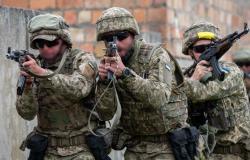
Badr Tadlaoui
|
1:34 p.m. – January 7, 2025
Xavier Driencourt, former French ambassador to Algeria, sounded the alarm on the growing influence of Algerian relays in France, which he considers a source of potential destabilization. During an interview with Europe 1 on Tuesday January 7, he declared that “the time is no longer for doubt” and called for concrete measures to limit this influence.
According to Mr. Driencourt, Algeria benefits from a vast network of influence in France, including 20 consulates which, he asserts, “function as relays of direct influence.” He also mentioned the presence of numerous mosques and informal financial circuits which he describes as levers of power abroad.
The former ambassador also recalled a striking sentence pronounced against him by a former Algerian Prime Minister: “Mr Ambassador, we know you much better than you know us”before emphasizing: “I think it’s all in this formula.” He added that he did not think that an organized plan would come directly from Algiers, but that “the fact is that the Algerians have relays in France.”
In response to recent comments by the French Minister of Foreign Affairs raising doubts about Algeria’s good intentions, Mr. Driencourt said: “The time is no longer for doubts. Now is the time for certainty.”
He also recalled a bilateral agreement signed in 2007 between Bernard Kouchner, then French Minister of Foreign Affairs, and his Algerian counterpart Mourad Medelci, allowing Algerian nomenclature to travel to France without a visa. “This agreement opened the way to an influx of Algerian personalities coming to France to manage their financial affairs or seek treatment, without real control”he stressed.
Mr. Driencourt called for a review of bilateral relations with Algiers. “It is urgent to take measures with regard to Algeria to restore balance in diplomatic relations and counter these mechanisms of influence.”
These declarations come in a context of heightened tensions between Paris and Algiers, particularly on migration issues, economic relations and shared memories linked to colonial history and, for some time now, on the 1968 agreement.
Morocco





